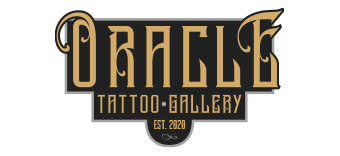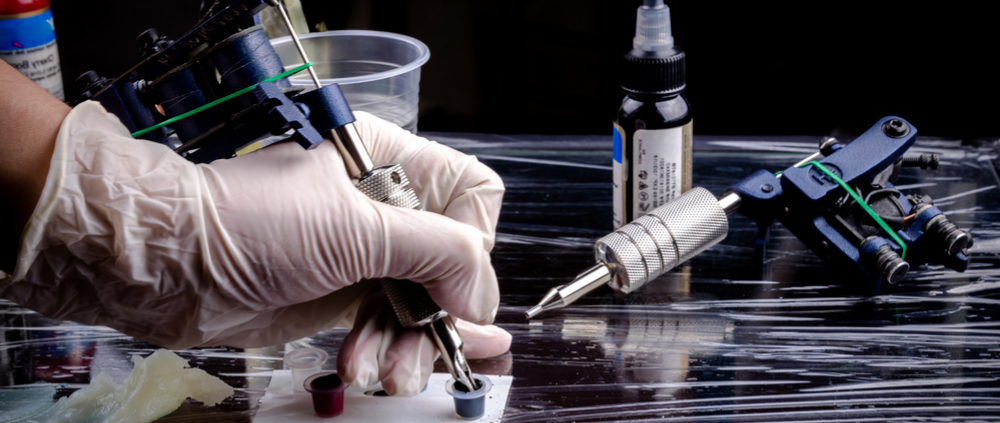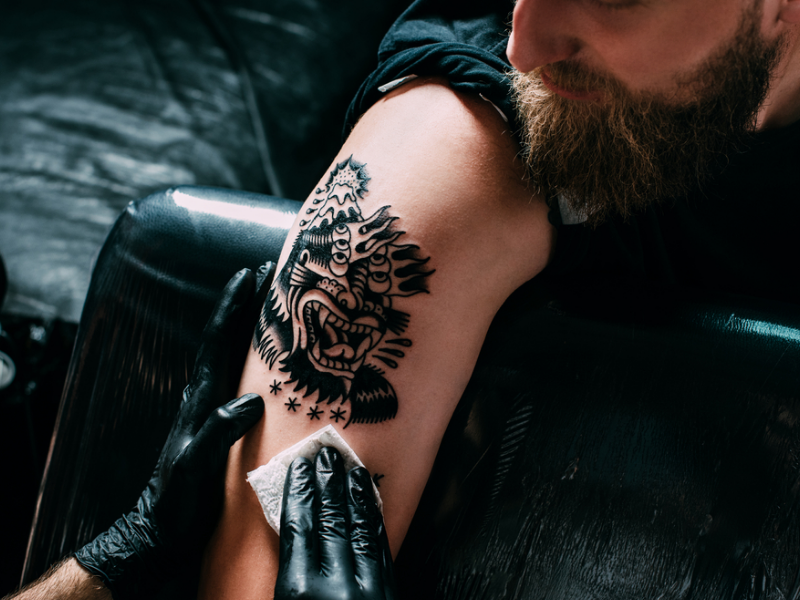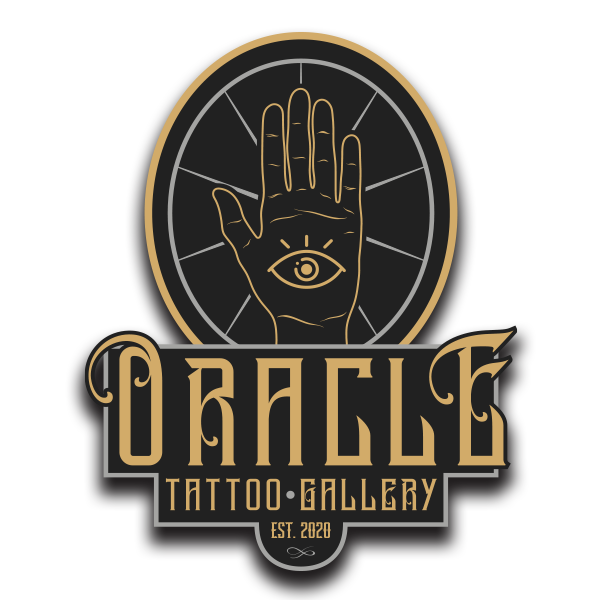5 Safety Questions To Ask Your Artist Before Getting A Tattoo
Getting a beautiful tattoo is an exciting experience that most people greatly look forward to especially if it is a first-time tattoo event. However, this process is still considered an invasive procedure that has risks of potential health problems such as a post-tattoo infection, scarring or other ongoing dermatological issues according to the Oracle Tattoo Gallery located in Philadelphia.
Consider these 5 safety questions to ask your artist before getting a tattoo. Implementing these 5 safety-related inquiries can help you to go into this experience fully informed and help you to avoid or limit any potential health or other safety problems. Doing so can help to ensure a successful and happy end result that can give you a lifetime of enjoyment of your intended personalized tattoo design.
1. What Sanitation Procedures Do You Use to Sterilize Equipment & Supplies?
Every tattoo shop must abide by certain health and safety standards and regulations that may vary somewhat depending on the geographical location. The vast majority of professional tattoo artists will ensure that these rules and safety procedures are followed because this directly impacts their future business and ultimately their profits either in a positive or negative way.
Some things to consider before actually undergoing a tattoo regarding the shop’s sanitation procedures and equipment/supply sterilization processes are detailed below.
Exactly How Is the Equipment Sterilized Between Clients?
The only way to help prevent client to client and shop environment contamination and transfer of potentially harmful pathogens is to carefully and meticulously follow cleaning and sterilization processes and procedures recommended by top regulatory health and safety agencies.
These procedures should include the following items.
- Use of a medical grade autoclave for non-disposable equipment and supply sterilization between clients
- Use of disposable needles and other supplies whenever possible
- Strict compliance with all current health and safety regulations
- Never using expired needles or supplies
- Use of partitions between multiple artists and clients strongly preferred
- Regular and thorough shop cleaning processes
- Keeping all staff up-to-date on current certifications
- Transparent and honest staff to client communications
Potential clients should also plan to perform an in-depth investigation on any Philadelphia tattoo shops that they plan to consider or frequent. Every tattoo artist that is worth considering should be happy to explain their own personal sanitation and cleanliness routines and shop measures so that potential clients will have peace-of-mind regarding the shop itself and their chosen tattoo artist.
It is best to personally see and review the shop environment in person and to speak candidly with the tattoo artist to best prevent potential health and other safety problems later that may develop. Do not be afraid to ask the artist to show you their supplies and explain their processes before you actually commit to a tattoo appointment.
2. Can You Tell Me Which Brands of Ink That You Work with in Your Practice?
Many individuals are surprised to learn that the FDA does not regulate the ink and other supplies that tattoo artists use on a regular basis. The choice of ink and related mixing ingredients can play a huge role in decreasing the amount, seriousness and frequency of client skin and other health related problems that may occur during or after getting a tattoo.
It is essential for the tattoo artist to carefully select their preferred ink brands, colors and related additional solutions and ingredients to avoid potential problems. Most experienced professional tattoo artists will have figured out which inks and brands work best for their specific style of tattoo design and artistic rendering of each.
Potential clients should ask to view the ink that the artist will use on their desired tattoo design before the actual appointment in order to have the necessary time to review the ingredient list on each ink product. Even under the best of circumstances, some clients will have more sensitive skin, and some may have specific dermatologic sensitivities and allergies that could cause a problem such as skin rashes, raised keloid scars and infections.
Here are some excellent steps you can take to help avoid later problems after getting a tattoo.
Consult with a Dermatologist if You Have Skin-Related Issues
This is the best way to avoid future skin issues, and a trained dermatologist can evaluate your known and potential allergies and sensitivities before undergoing a tattoo or other invasive skin procedures as well as evaluate any ink and care product ingredients to ensure the health and safety of each client’s skin integrity.
Research Ingredient List for Expert Evaluation via Computer or Other Route
There are online websites that do review some of the more common tattoo ink brands and give a detailed breakdown of the ingredients that clients can easily access on a computer.
Ask the Artist to Perform a Patch Test First
This is especially helpful for those with skin issues and sensitivities. Keep in mind that some reactions can occur weeks, months and even years later in rare situations.
Communicate Dermatologic Conditions & Concerns to Tattoo Artist
Most artists have clients sign waivers to protect the artist and shop from legal lawsuits and culpability should an unwanted problem develop. Honest and timely communication of these concerns is crucial.
3. Is Your Shop Licensed & Do You Have a Current Certification for Bloodborne Pathogens?
If a shop avoids allowing clients to see their certifications, consider this a huge red flag. There are many serious bloodborne pathogens that can get transferred through the process of undergoing a tattoo. Check with your doctor to see if you are currently vaccinated for Hepatitis B a serious bloodborne pathogen ailment.
Additionally, inquire about how the shop stores and disposes of supplies that come into contact with clients and shop surfaces that may be contaminated. Make sure that the shop is following the latest medical supply storage, sterilization and other cleaning recommendations as well as correct and safe disposal of needles and other sharps. Larger tattoo equipment should be covered with clean plastic sheets between uses.
4. Can I Watch You Work & See Your Past Work Portfolio?
Feeling comfortable with your choice of tattoo artist is a key component to a happy end result. Most tattoo artists will allow the potential client to observe their practice in person as long as there are no breaches of other client rights for confidentiality and dignity.You will also want to view some examples of your artist’s past work in a portfolio or on the shop’s website gallery to ensure that this artist is the right one for your intended tattoo type, size and design style.
5. May I See Your Aftercare Instructions for Clients?
Ask about the aftercare instructions that your tattoo artist will give clients to ensure your understanding of what is expected on your part at home. Most artists will have their own preferences in aftercare procedures and cleaning products that they should be able to explain to clients upon request.
Certain over-the-counter aftercare tattoo products can be drying or may promote unwanted bleeding of the tattoo colors that could result in a less than desired color vibrancy and level of color discernment lines later as the tattoo heals.
Knowing which aftercare products will be used ahead of time can also allow potential candidates to ensure that they are not allergic or too sensitive to any included ingredients.
It is important to follow the tattoo artist’s aftercare instructions to the letter for best end results. Most artists will offer at least one tattoo touch-up if the tattoo color fades or becomes blurred after healing, but it is important to inquire about this upfront.
Conclusion:
Asking the right questions and doing your due diligence before choosing your tattoo artist can go a long way towards a happy and satisfied tattoo result. Find a local tattoo artist by inputting “local tattoo shops near me” into your preferred search engine Internet bar to generate nearby options.Get in touch with The Oracle Tattoo Gallery by phoning 215-638-1601 to speak with a friendly
staff member. Visit www.oracletattoogallery.com online for more information.





